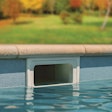
That was my first thought when I heard that the CPSC would reverse its decision, making previously unblockable drains blockable again.
Nothing happened between the time the CPSC saw these drains as safe, and the time they saw them as unsafe, except for a lot of pleading by people who either had money to make, or had the grief of a personal tragedy to assuage.
In truth, I understand where these groups are coming from (I’m an opportunist myself, and a father of three) but that doesn’t make them right, and every objective observer I know is howling that this action was wrong. That is, except for the people we employed in this case to be objective.
We elect government and pay them a great deal of money to be reasonable and impervious to the passions of those with personal motives. Too often, they just aren’t.
I actually braved the near-lethal tedium of the CPSC meeting webcast last week. And what a depressing spectacle it was. I could only conclude that everybody involved was getting paid by the word, and the outcome of the meeting was a secondary consideration.
Seriously, these people need real jobs — it focuses the mind.
I do have to applaud the efforts of two members of the Commission, Anne Northup and Nancy Nord. They spoke up for common sense. But every point they made was drowned in a tidal wave of empty verbiage — a tsunami of weary blather, delivered with a certain professional expertise, signifying absolutely nothing.
Nord summed the case up perfectly in her blog, “18 months ago we put in place, by a 3 to 2 vote, a rule interpreting the new pool safety law. Since that time all fifty states have been working hard to implement our rule. However, next week we will reverse our rule because one commissioner who voted in the majority has changed his mind on what the law requires. The result may be to make irrelevant much of the hard work those states have been doing. When I asked if the agency had new data or a new legal interpretation to justify reconsideration of this matter I was told, “No.” When I asked for a staff briefing of the commission on this matter, I was told, 'No.' When I asked that we contact the states asking for input on whether the proposed new course of action made sense, I was told, 'No.'
“Despite the agency’s refusal to get data, I reached out to several state health officials. I was shocked by what I was told. First, there is strong dismay that a reversal is being considered. Second, this reversal will have serious financial implications for the states that relied on our current interpretation. Third — and most importantly — this reversal will have serious adverse safety implications.
“…we are actively ignoring the experts in the states who have direct responsibility for assuring pool safety. I would sooner rely on their arguments than those of colleagues who have no expertise and who, as we have seen, can always change their minds.
“Common sense and good administrative practice say that when you reverse course, you should find out who will be impacted by your action before you do it. This is even truer when there is no impetus for the reversal and no rallying cry or public discussion prompting you to act.”
Not much to add to that, except that this new ruling, by concentrating our pool safety efforts on more complex, less reliable technology, and due to its unintended effect of cutting funds for swimming instruction, will make pools more dangerous.












































